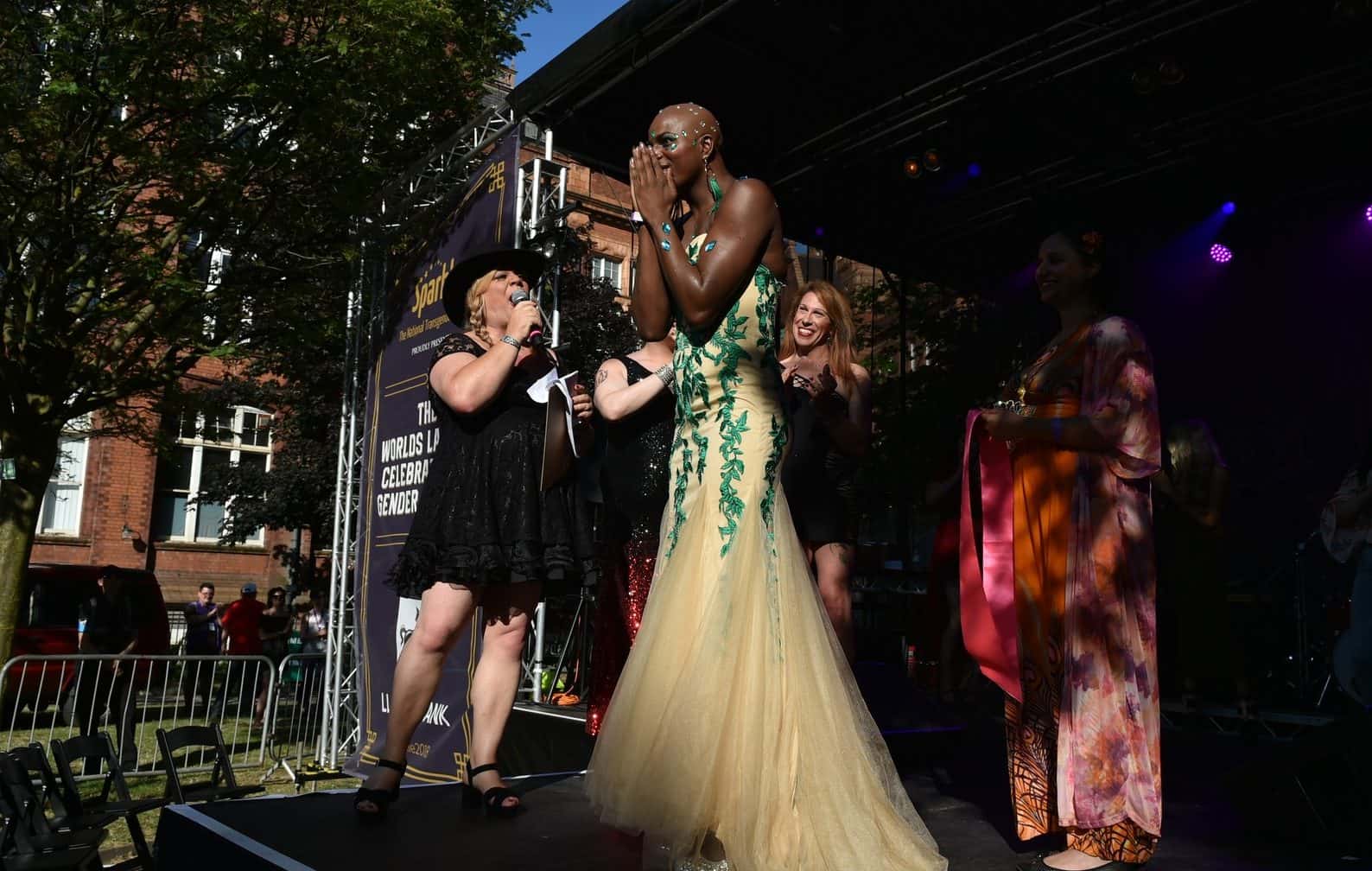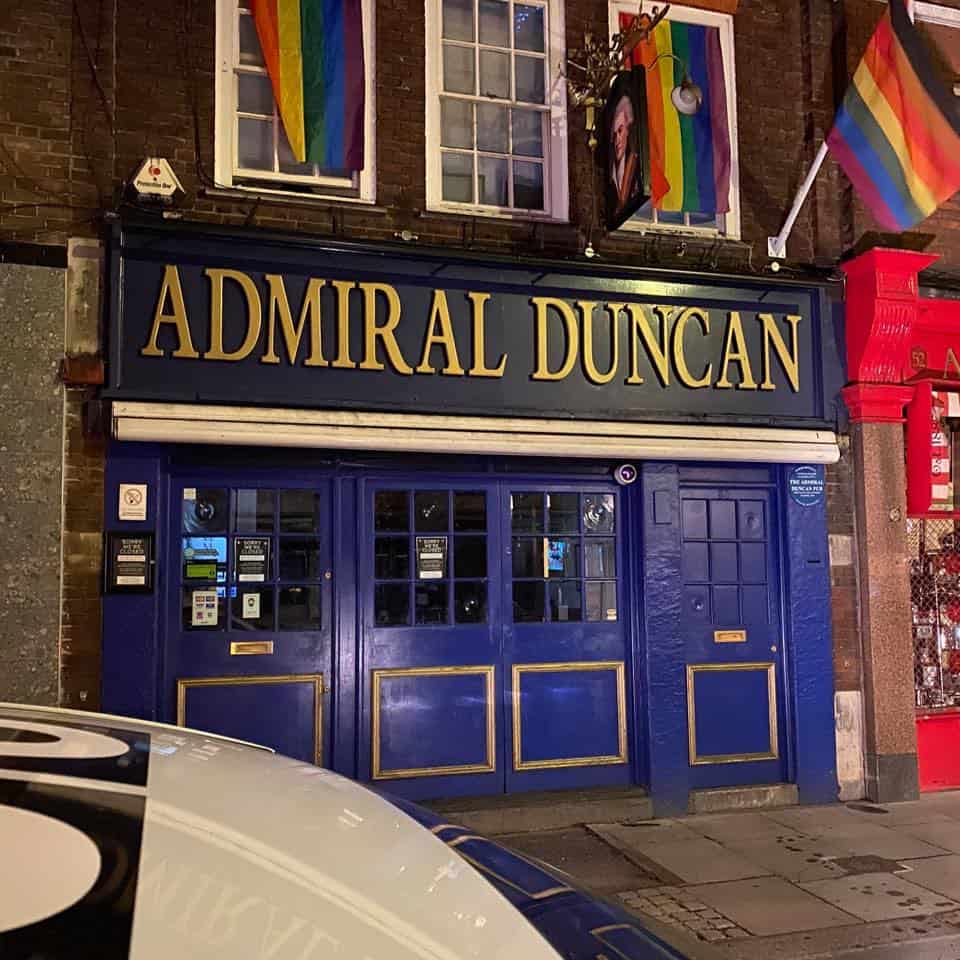
LGBT+ Landmarks in London
LGBT+ landmarks in one of the world's gayest cities
London has been a hub of LGBT+ culture since the 18th century when pubs and coffee houses became popular with gay men seeking connection-known as Molly Houses. LGBT+ people continued to seek refuge in the city since then, forming communities and leaving their mark on the streets of the capital. However, it wasn’t until the second half of the 20th century that those who didn’t identify as heterosexual and cisgender were able to live openly and publicly. This means that London is a treasure trove of LGBT+ landmarks, not only exemplifying the courage and pride of the city’s LGBT+ population but also its earlier and more secretive history.
Alan Turing statue
Most people will recognise Alan Turing’s name, and most will probably also be aware of his pioneering computing work that many cite as a driving force behind the allied defeat of Nazi Germany. However, in 1952, just seven years after his genius saved the country, Alan Turing was prosecuted for homosexual acts. Turing agreed to undergo chemical castration as an alternative to prison, however, the physical and mental strains of the barbaric procedure were too great for Turing, who ultimately took his own life just 16 days before his 42nd birthday.
In addition to an official pardon by the prime minister, Turing is commemorated today but a sculpture on St Mary’s Terrace, Paddington and visitors often leave flowers and messages to this original LGBT+ icon.

Virginia Woolf’s homes
Virginia Woolf is considered by many to be one of the most important modernist writers of the 20th century and her most famous works are considered stalwarts of British literature. However, it was Woolf’s 1928 novel Orlando and the stories and letters that inspired it that make her numerous homes LGBT+ landmarks.
Orlando was inspired by Woolf’s 10-year affair with fellow London novelist Vita-Sackville West. Despite both women being married to men, they engaged in a passionate and forbidden relationship that began after meeting at a party in 1922.
Virginia Woolf lived in several houses in London and interested individuals can visit both her childhood home in Kensington as well as the Tavistock Square house where she penned Mrs Dalloway.
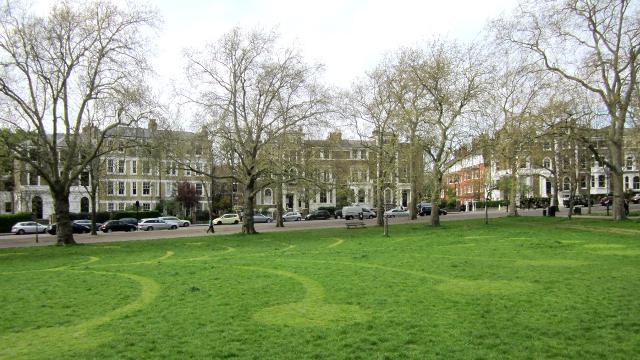
Highbury Fields
In November 1970 over 100 members of the Gay Liberation Front held what is often believed to be the UK’s first gay rights protest at Highbury Fields in Islington. The group was demonstrating against the police entrapment of Louis Eakes, a prominent member of the local LGBT+ community. Many credit the events of that night at Highbury Fields as a catalyst for the gay rights movement that followed.
In 2000, a plaque was unveiled at the park to commemorate the efforts of those who stood up for themselves and showed admirable courage that night and throughout the campaign for gay liberation. The plaque is a one of the most significant LGBT+ landmarks and worthwhile visit, the surrounding Highbury Fields are a relaxing and scenic spot amidst the noise of the capital.
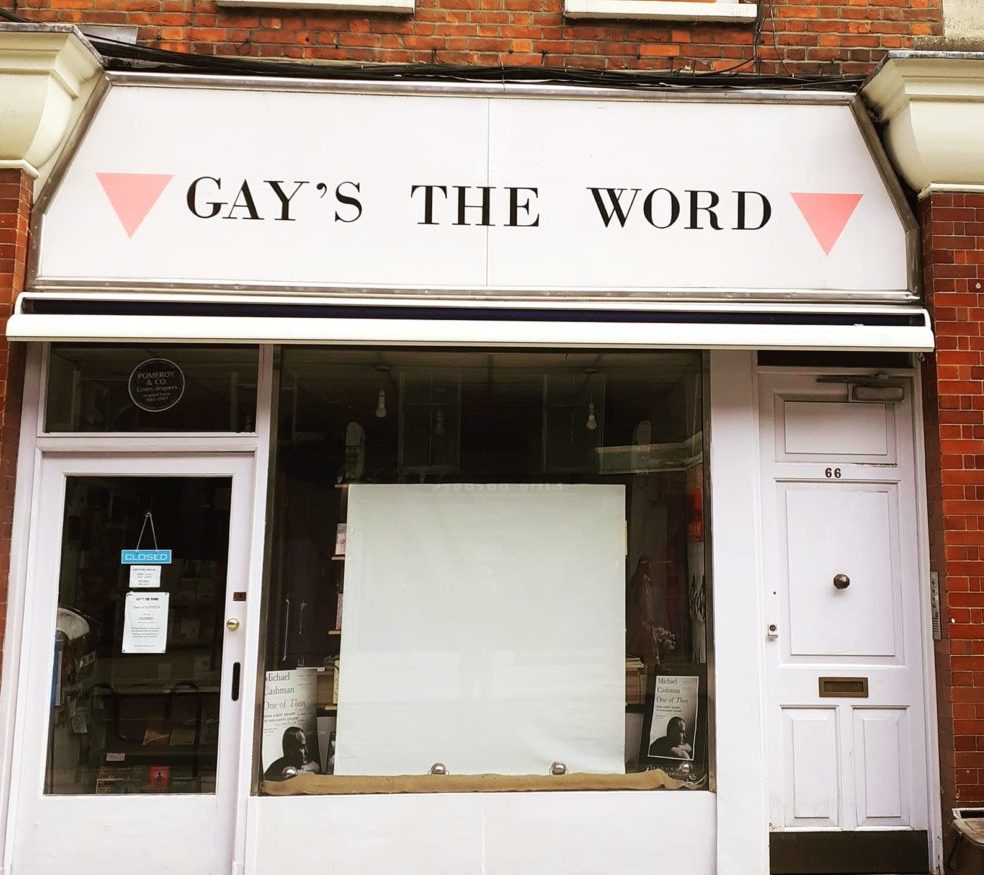
Gays the Word bookshop
Many LGBT+ film fans will immediately notice the Gays the Word bookshop from the 2014 film Pride. Based on real events, the film depicted the bookshop as the meeting place for Gays and Lesbians Support the Miners, one of the earliest and most influential LGBT rights groups in the UK. Gays the Word is England’s only bookshop dedicated to providing LGBT+ focused material and since its opening in 1979 has been a hub of queer culture in the capital. Despite facing numerous setbacks including extreme rent inflation, hateful attacks and decreased footfall, Gays the Word continues to offer a range of LGBT+ books from around the world.

Admiral Duncan Pub
One of the first gay bars in the UK, the Admiral Duncan pub served its first customers in 1832 and was shaped by its location in Soho into one of the city’s best established gay pubs. The pub became headline news when it was the site of the country’s worst homophobic attack in 1999. The nail bomb detonated inside killed 3 and injured 70. Visitors to the pub today will notice the memorial chandelier hanging in the bar as well as a plaque in nearby St Anne’s Gardens.
Despite the attack, the Admiral Duncan is still a popular and vibrant landmark in iconic Soho and is renowned for its welcoming and friendly atmosphere as well as its weekly cabaret shows.
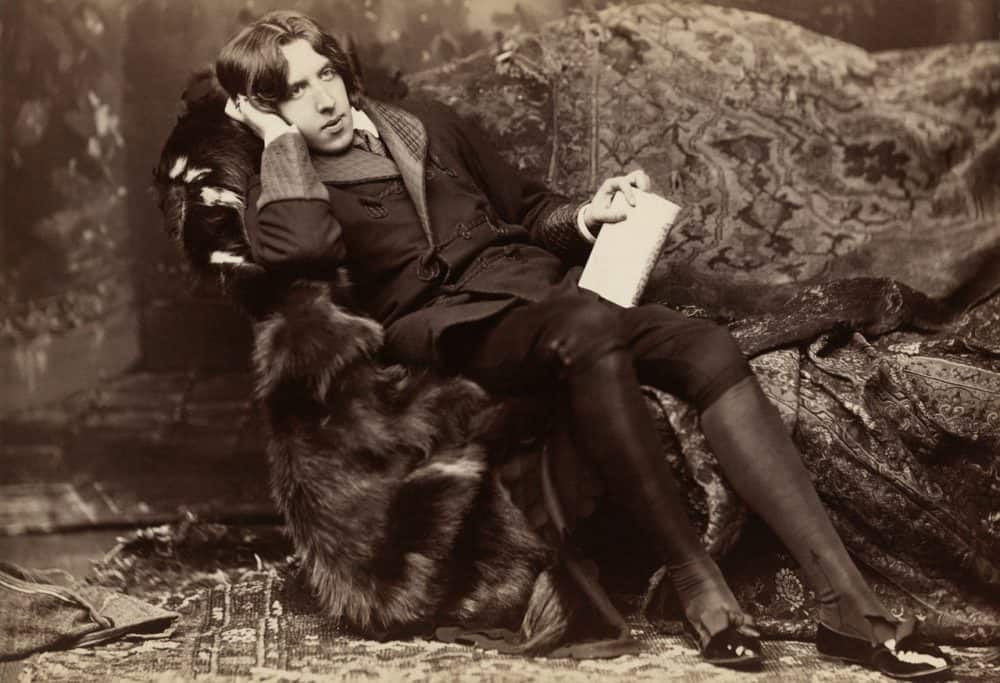
Oscar Wilde Statue
A conversation with Oscar Wilde was unveiled in 1998 in central London. The statue is one of London's newest LGBT+ landmarks and features the bust of Wilde smoking a cigarette and facing a section of the installation designed to enable passers-by to stop, sit and have a “conversation” with the literary and LGBT+ legend himself.
Despite producing countless works of widely celebrated poetry, Oscar Wilde spent two years in prison and three in exile in a time when being gay was illegal. The sculpture sits on the edge of London’s theatre area, a significant location in the prominent playwright’s life.
Read More: London's coolest neighborhoods.
Join the Travel Gay Newsletter
What's On Today
More Gay Travel News, Interviews and Features
The Best Tours In London
Browse a selection of tours in London from our partners with free cancellation 24 hours before your tour starts.

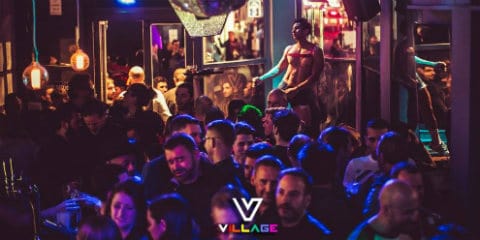
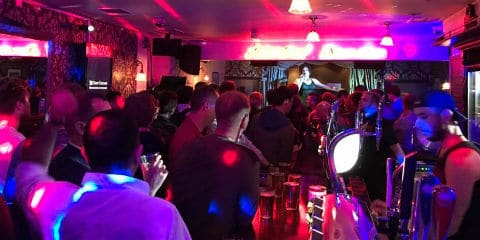
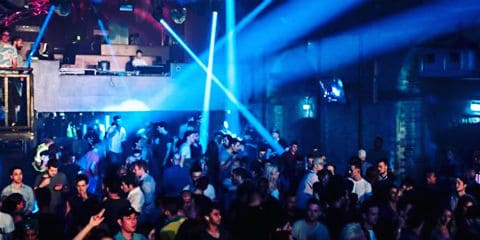
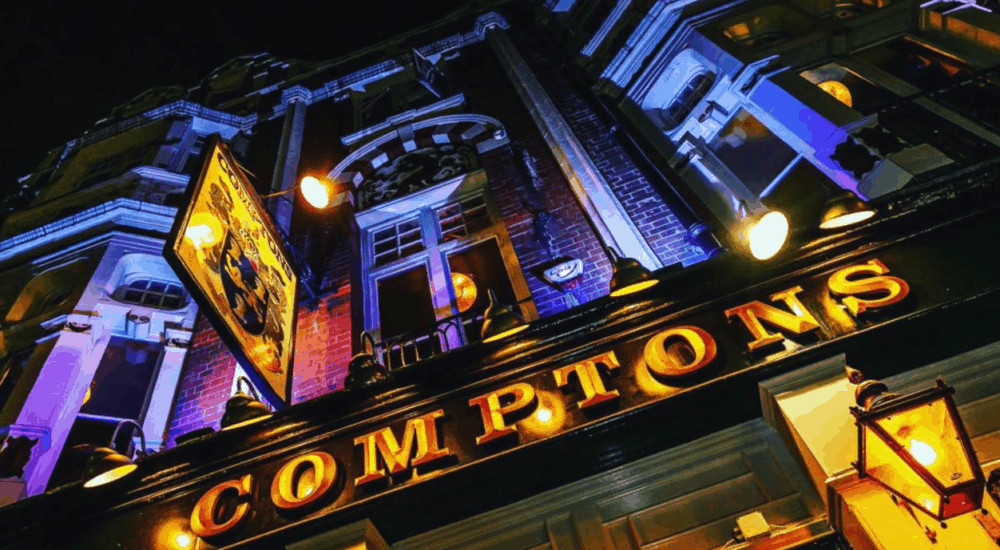

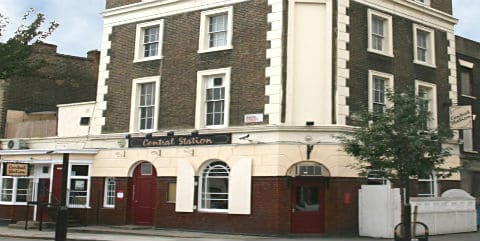
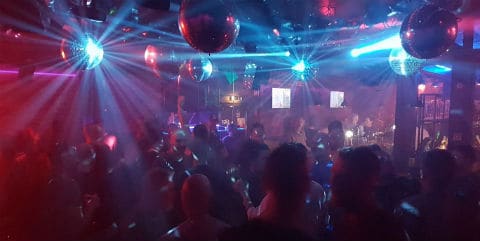
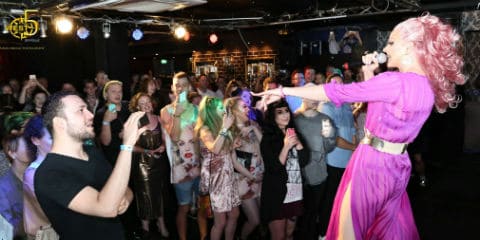
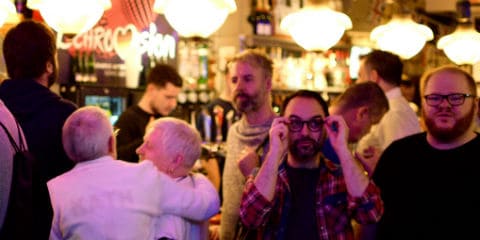


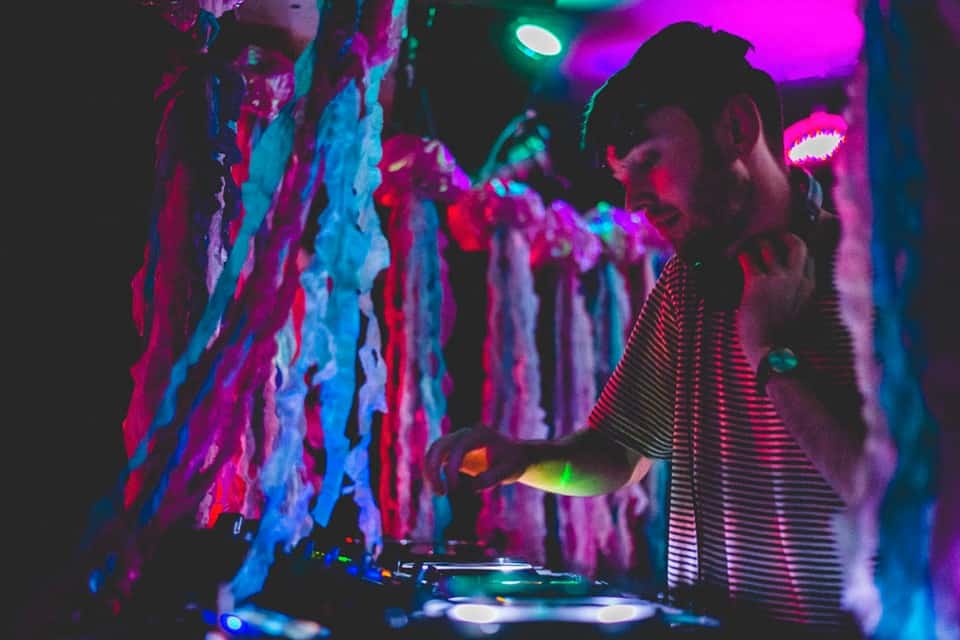

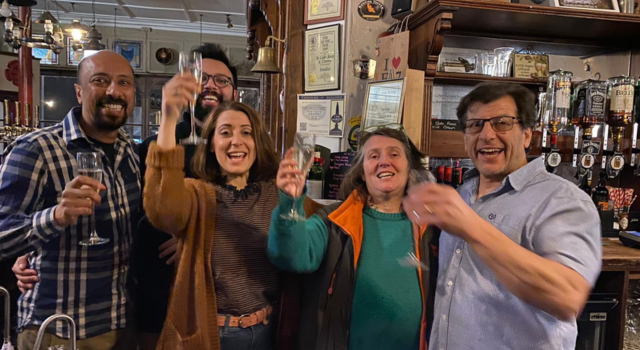
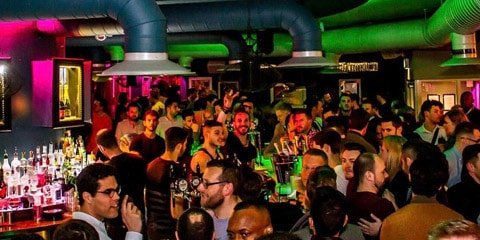
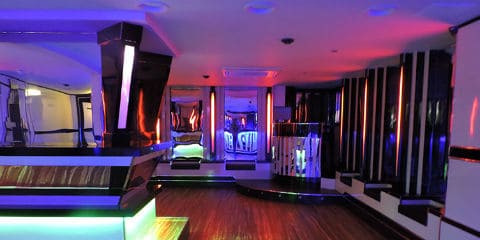

.png)
